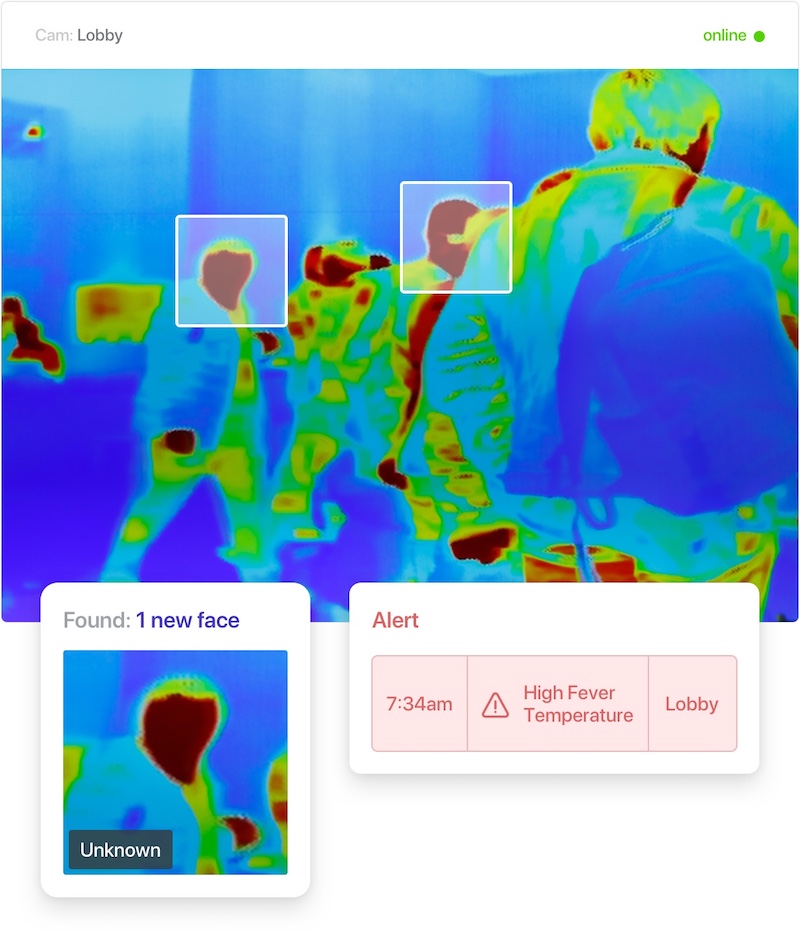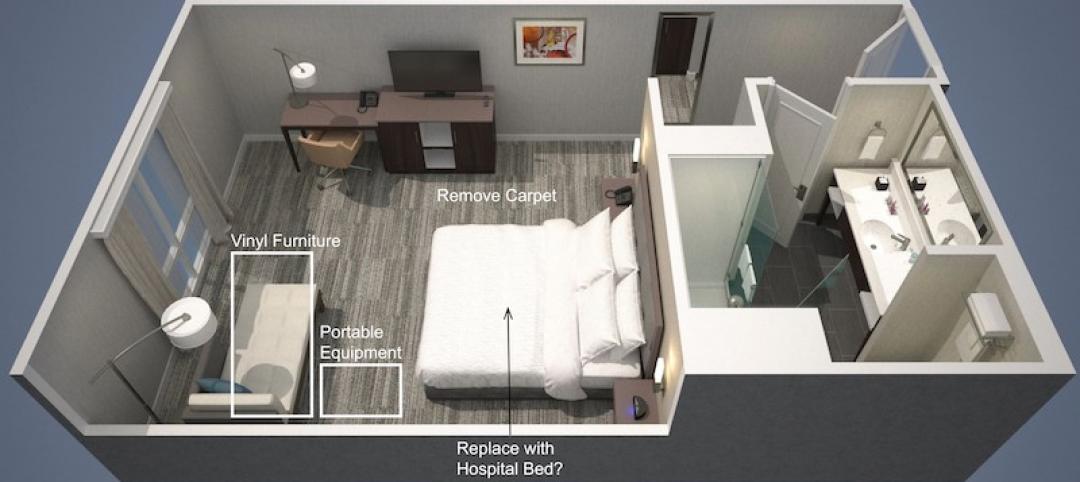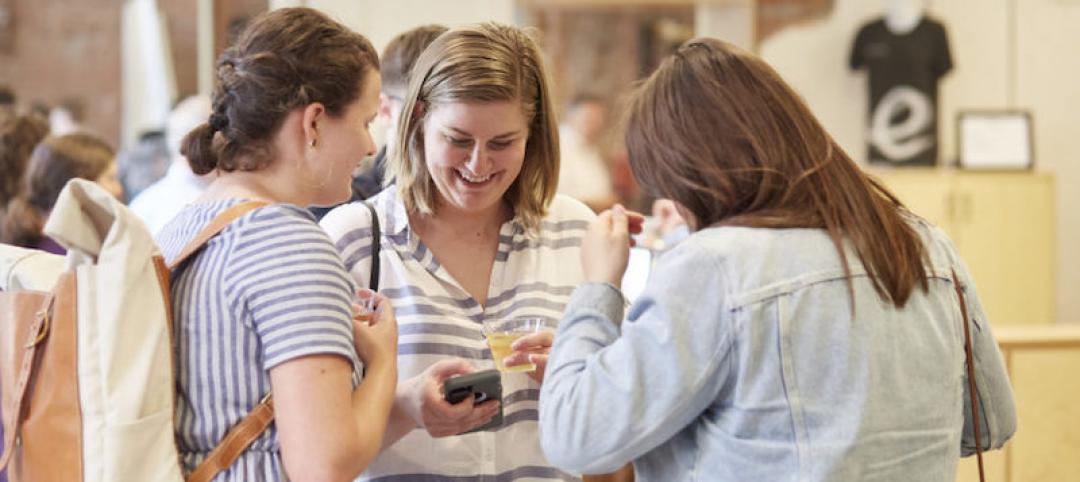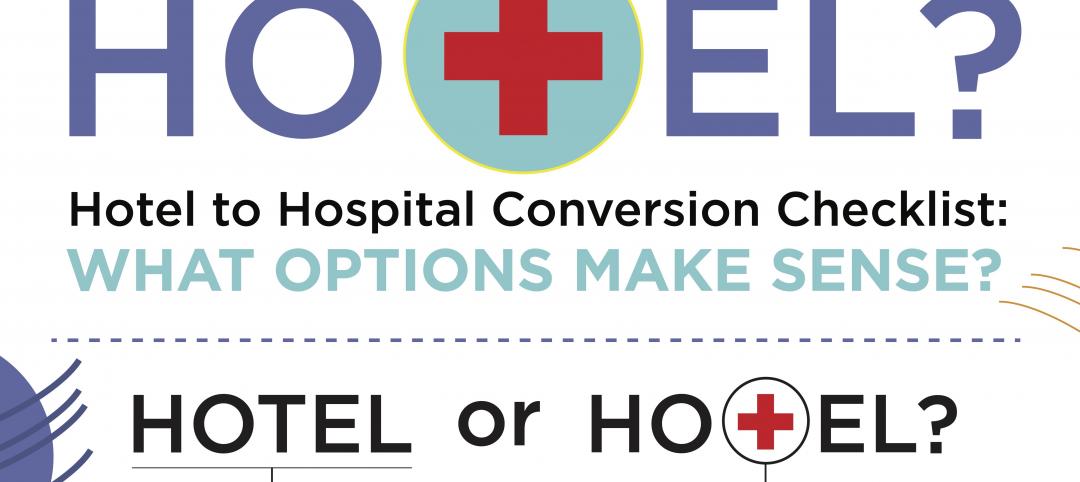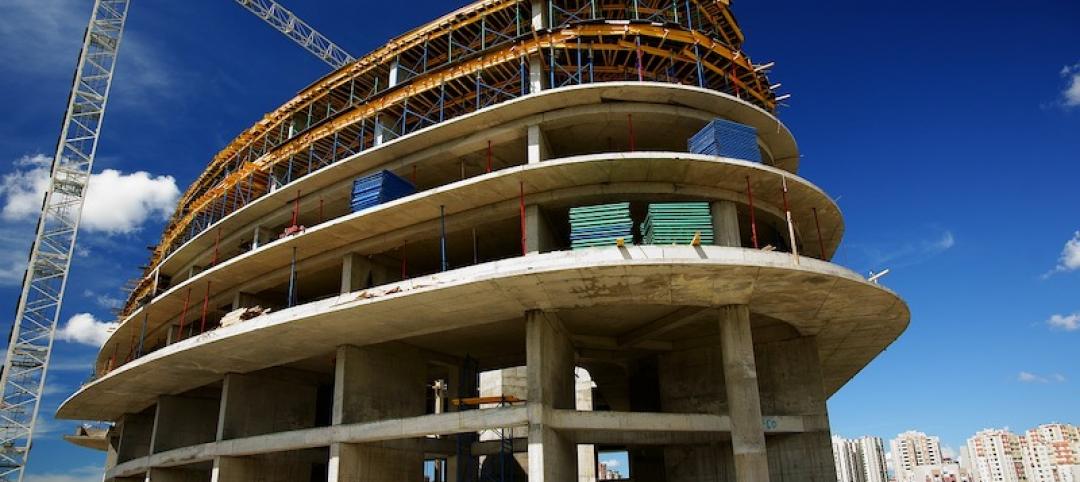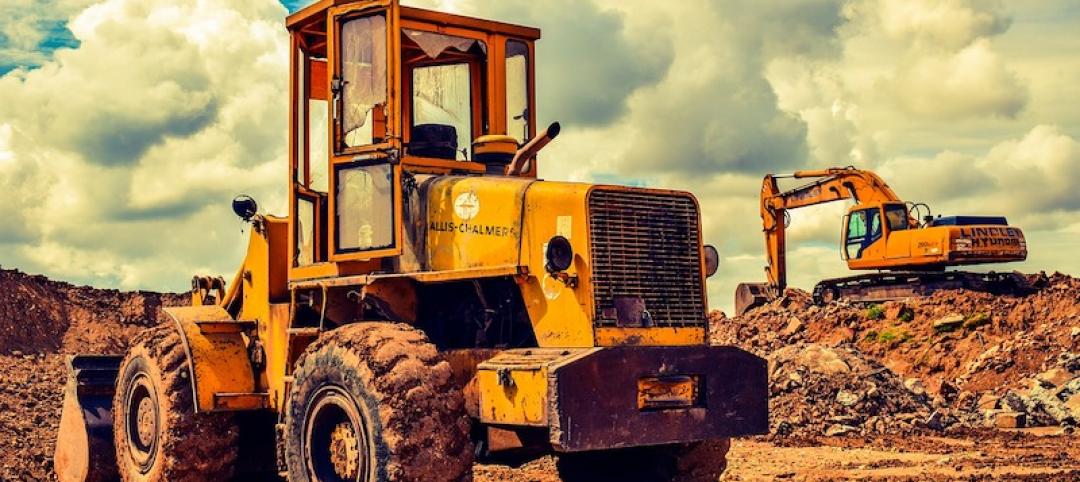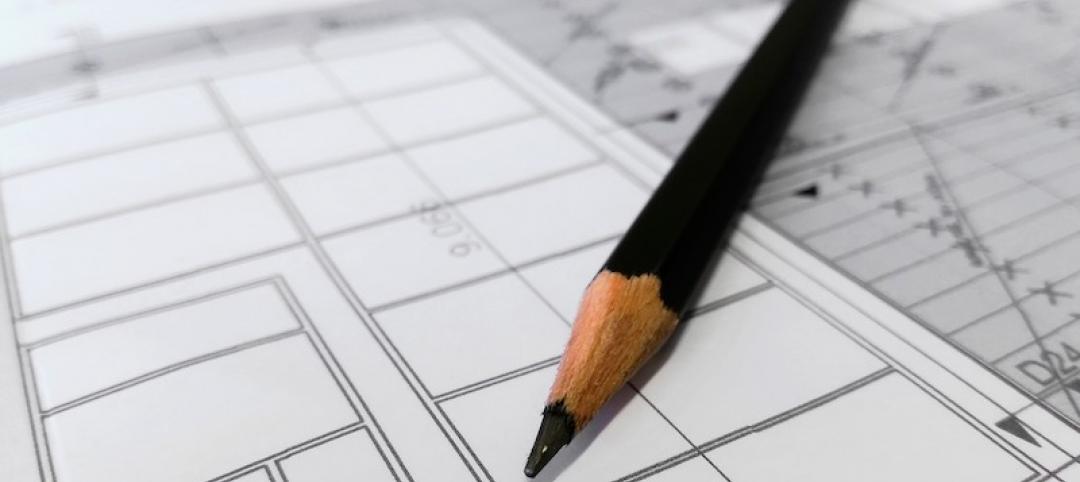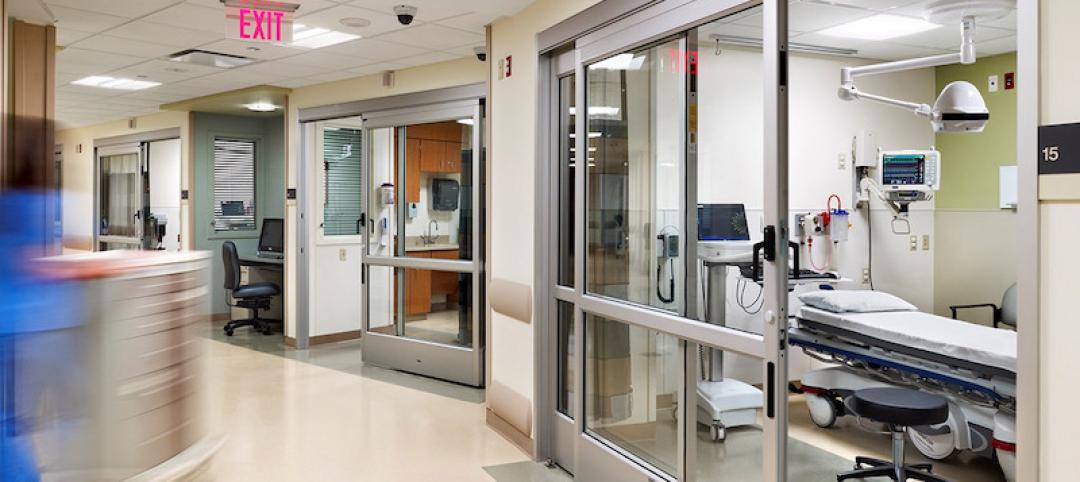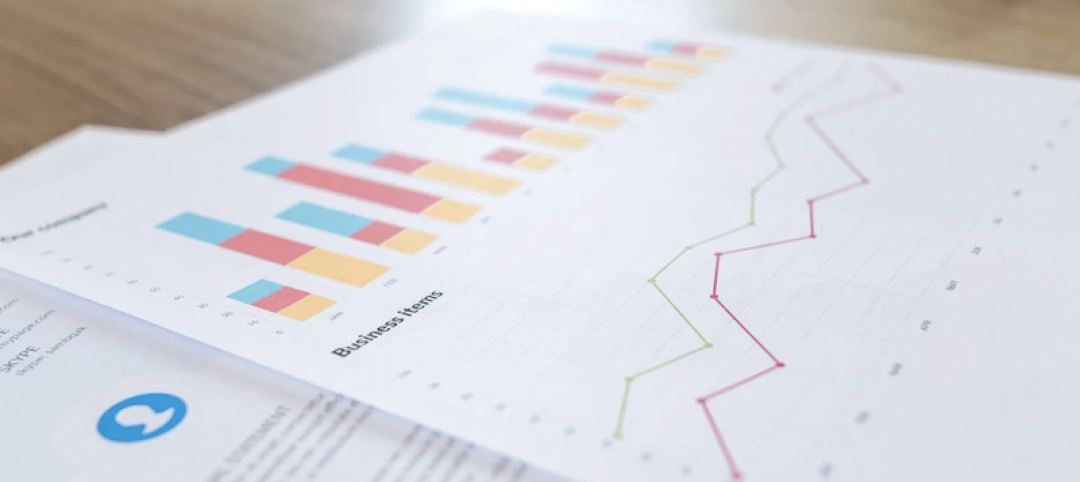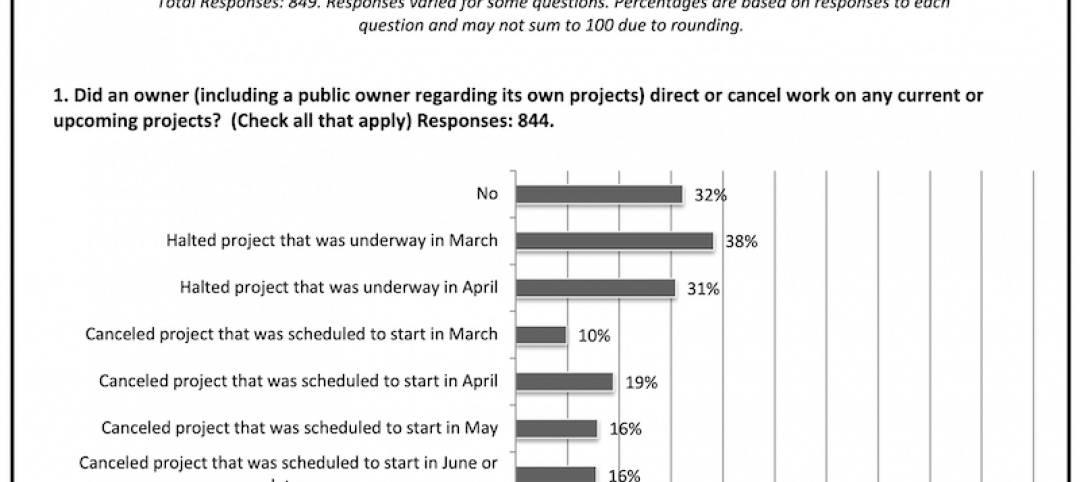Kogniz, an innovator in physical security and machine learning, is launching an AI-enabled camera and software system that scans groups and crowds entering a facility and identifies anyone with an elevated temperature. Called Kogniz Health, the highly-accurate solution alerts company personnel in real time so that any individual with a fever can be isolated as needed. The company already has more than 12 large customers, each using multiple cameras.
As state and local governments ramp up to protect the public against the COVID-19 pandemic as well as other illnesses, the scalable system offers a means for organizations to avoid the cost and risk of posting staff with handheld thermal devices at entrances to take individual temperatures. Kogniz Health Cams can be deployed at every entrance to an office, campus, warehouse or distribution center where many people are coming through.
“Companies want to keep their employees healthy and safe,” said Daniel Putterman, Co-founder and Co-CEO, Kogniz. “During a pandemic such as this one it is critical that organizations be able to quickly identify people who might be sick, and one way to do that is to detect fever. Handheld thermal guns are very expensive, labor intensive, and create a bottleneck. We are able to provide temperature detection for high-flow environments so individuals with elevated temperature can be further checked.”

How it Works
The Health Cam has an integrated thermal camera, optical camera and a high-resolution screen. It can be placed on a desk or counter, mounted on a wall, or placed on a tripod. As people walk by individually or in groups, their temperatures are checked in real time using highly-accurate infrared technology, and the image of any person showing an elevated temperature is displayed. Kogniz Health Cam can detect skin temperature up to 16 feet away.
The Health Cam uses advanced AI to detect a person’s temperature near the eyes to get the most accurate reading. The system does not require any additional equipment and adjusts automatically to changes in ambient temperatures.
Real-time alerts are sent over SMS, mobile push and Slack™. The live video stream, including temperature, is displayed on the Kogniz Health Cam display, and is available remotely in the Kogniz mobile app and web interface.
Kogniz Health Cams set up in minutes and can be added to an unlimited number of locations. Each camera integrates automatically with the Kogniz platform and can be viewed and managed from the Kogniz mobile app and web interface. Staff can set alerts for specific temperature ranges or for above a normal range.
Pricing and Availability
Prices for a single camera and a year-long subscription to the Kogniz AI platform start at less than $10,000.
Related Stories
Coronavirus | Mar 31, 2020
As cities scramble for hospital beds to treat COVID-19 patients, Leo A Daly offers a hotel-to-hospital solution
The firm has devised three conversion models, for different levels of healthcare required.
Coronavirus | Mar 30, 2020
Your turn: Has COVID-19 spelled the death knell for open-plan offices?
COVID-19 has designers worrying if open-plan offices are safe for workers.
Coronavirus | Mar 30, 2020
Learning from covid-19: Campuses are poised to help students be happier
Overcoming isolation isn’t just about the technological face to face, it is about finding meaningful connection and “togetherness”.
Coronavirus | Mar 30, 2020
COVID-19 innovation: Setting parameters for hotel-to-hospital conversions
tvsdesign breaks down different room types and how they might help free up hospital beds for coronavirus patients.
Coronavirus | Mar 30, 2020
New Department of Homeland Security guidance clarifies construction's role in supporting essential critical infrastructure
Construction officials say new federal guidance should signal to state and local officials the need to allow construction activity to continue, or resume, during coronavirus-related work stoppages.
Coronavirus | Mar 27, 2020
Sharp jump in owners cancelling or delaying construction projects across the country, new survey finds
After 42 states added jobs in February, coronavirus is taking a swift and severe toll on the industry, prompting association officials to call for additional measures to help workers and firms recover.
Coronavirus | Mar 27, 2020
Covid-19 stalls demand for design services
Two thirds of architecture firms report slowing or stoppage of projects due to COVID-19.
Coronavirus | Mar 26, 2020
It’s not if, but when: Designing healthcare spaces that support pandemic response
What can we learn from Singapore’s response to COVID-19? How does it impact the next generation of hospitals?
Coronavirus | Mar 26, 2020
AIA praises Congress for advancing desperately needed COVID-19 relief
Approval for the latest relief legislation advances a number of AIA-supported measures to help meet the needs of firms and members.
Coronavirus | Mar 25, 2020
Coronavirus pandemic's impact on U.S. construction, notably the multifamily sector - 04-30-20 update
Coronavirus pandemic's impact on U.S. construction, notably the multifamily sector - 04-30-20 update


